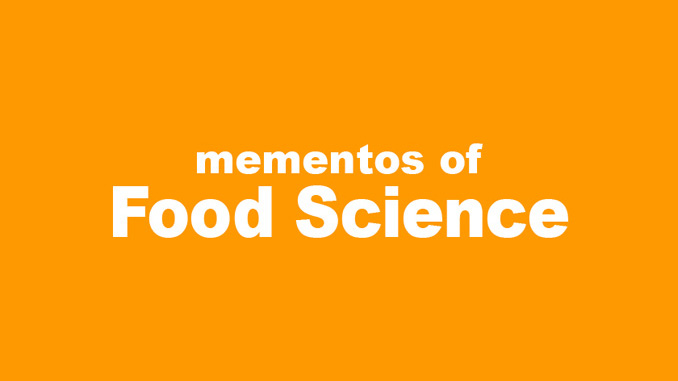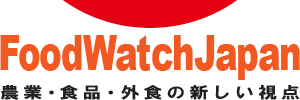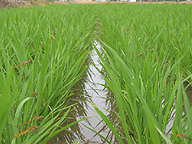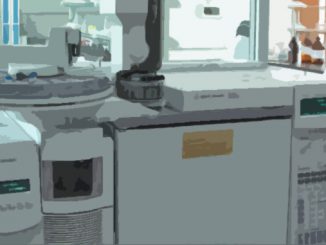
食料安全保障は広く認められた21世紀の課題の一つである。国連食糧農業機関(FAO)は現代バイオテクノロジーを、農業生産を向上させる重要な手段の一つと位置付けている。しかし、多くの国々が現代バイオテクノロジーの受け入れに悪戦苦闘している。バイオテクノロジーを巡る絶え間ない社会政治的な議論はさておき、現行の指針の下での食品安全性評価は、多くの開発途上国にとって技術的に困難であるか、全く力の及ばないものであったりする。FAO/WHO合同食品添加物専門家委員会(JECFA)は、50年以上にもわたり食品添加物を評価してきている。果たしてこれは、バイテク作物の国際的に認められた食品安全性評価の有益なモデルとなるのではないだろうか。
Food security is a recognized challenge for the 21st Century, and FAO (the United Nation’s Food and Agriculture Organization) has identified modern biotechnology as one of the important tools that can improve agricultural output. However, many countries are struggling to adopt modern biotechnology. Aside from the continuing social and political debate surrounding biotechnology, assessing food safety under current guidelines is technically challenging and may be out of reach of many developing economies. The Joint FAO/WHO Expert Committee on Food Additives (JECFA) has evaluated food additives for over 50 years and may provide a useful model for internationally recognized food safety assessments for biotech crops.
世界のバイテク作物の生産高は着実に増えている(参照:ISAAA Brief #39, 2008)。2008年には、15カ国の開発途上国を含む世界25カ国がバイテク作物を植え付けた。これらバイテク作物由来の食品が世界市場に入っていくには、食品安全性評価がCodex指針と整合した形で行われなければならない。Codexの理論的枠組みは科学的に確固としたものであり、そのアプローチを通して認可された食品は既存の食品と同程度に安全である。しかし、安全性を評価するに当たっては、分子生物学やアレルギー誘発性にかかわるデータやそのほか技術的なデータを分析する特別な専門知識が必要だ。
先進国のほとんどは、食品安全のインフラが確立されており利用可能な科学的専門知識もある。例えば、日本、台湾、オーストラリア、ニュージーランド、アルゼンチン、ブラジル、カナダ、欧州連合、そして米国ではどこも、バイテク作物由来の食品の認可手続きを含む食品安全規制制度が機能している。翻って、ほかの多くの国では、事は同じではない。台湾やフィリピンは東南アジアのリーダー格であり、インドはBtナスの認可までにもう一歩というところだが、タイ、インドネシア、ベトナムなどはバイテク食品の受け入れに苦慮している。
同じような状況が、バイテク作物の規制制度を確立しているのは、ほんの数カ国というアフリカや中南米にも見受けられるようになった。事実、多くの国が、公衆衛生や新食品の認可を担う基本的な食品安全のインフラを欠いている。バイテク作物の食品安全性データを審査したり、調査結果を公表したりする国際的なフォーラムを作ることが、一つの解決策ではないかと思われる。JECFAはそのモデルとなり得る。
1950年代、国際社会は、食品に使われる化学物質の国際的な評価及び基準を持つことは重要であるとの認識に至った。JECFAは、FAOとWHOが合同で管理する国際的な科学委員会であり、食品添加物の安全性や汚染物質、また自然発生的な毒性物質や動物用医薬品についてCodexにアドバイスをしている。最初に会合が持たれたのが1956年、それ以来1500以上の物質について毒性学上のモノグラフや仕様を公表している。
同様に、Codex残留農薬部会(CCPR)は、食品品目ごとの、または食品群ごとの農薬の最大残留基準値をFAO/WHO合同残留農薬専門家会議(JMPR)の評価に基づいて定めている。JECFAとJMPR/CCPRの主要目的は、食品への化学物質の安全使用を確かなものとすることである。JECFAは、食品中に使用される1500以上もの物質の毒性学上のモノグラフや仕様を公表しているが、その情報はどの国にも規制制度の必要に応じて採用できるよう開かれている。FAOのホームページに掲載されているJECFAの概略図をご覧いただきたい。
JECFAとJMPRは、同一の事務局によって運営されている。その事務局は、加盟国との協議によってCodexが設定した優先事項に従って審査手続きを行っている。事務局はまた、委員会会議を開催し、科学的データを審査したり提言を行ったりする専門家名簿を管理している。専門家による審査の結果は公表される(現在はウェブサイト上にも公表)。
FAOとWHOはCodexと連動して、現代バイオテクノロジー由来の食品の安全性を評価する専門家会議を設置できる。今日、多くの国がCodex指針と一致した科学的評価を行っている。さらに、Codexは、Codex植物ガイドラインの付属文書「低レベルの存在」を採択するに当たって、Codex加盟国が認可を受けたバイテク品種に関する食品安全性データや情報を自由に入手できることが重要であると認めた。
その付属文書によれば、そういったデータや情報はFAOの管理する中央データベースから公的に入手可能とすべきとある。いったん動き始めれば、このデータベースはJECFAの流れ図の「call for data(データを要求)」の部分に類似した原資料の役割を果たすことだろう。その手続きや審査をする専門家の名簿の管理はCodex事務局が担えばよい。専門家についてのCodexの現行基準については、その手続きの信頼性を確保するために従うべきであろう。調査結果は、オンライン上で入手可能とすべきである。実際、多くの仕事がコンピューター上で行われているのだから。
JECFAとJMPRの合同小委員会などというのはどうだろうか。あるバイテク作物が殺虫効果を得るために組換えられ(例:害虫抵抗性あるいは耐病性)、またあるものが殺虫効果ではなく異なる特質(除草剤耐性あるいは栄養素の改良)を発現すべく組換えられていることを考えれば、想像は難くない。
JECFA/JMPRによる従来の食品安全性審査の代わりに、その小委員会はCodex植物ガイドラインと付属文書に示された方法論を支持し、ゆえにその審査の結論としてそのバイテク食品は既存の食品と「同程度に安全」であるという基準を用いるに違いない。FAO/WHO 合同専門家会議の成果は、特に開発途上国にとって、バイオテクノロジーの理解を強化するという点で大変有益である。
もちろん、この提案には不利な点もある。Codex事務局のリソースは限られており、新しい仕事を引き受けることが可能かは定かではない。また、多くの国はCodex制度の中に新たな常設機関を設けることには気が進まないかもしれない。後者についての懸念だが、バイオテクノロジー応用食品特別部会のケースでも明らかなようにCodexには臨時の作業部会を設置できる仕組みがある。臨時作業部会なり任期を4年に限った小委員会は、そういった方法が加盟国に役立つかどうか決定する機会を提供できるのではないだろうか。
開発途上国向けの支援活動や能力向上への取り組みがあまた続けられている。セミナーや研修会などバイオテクノロジー食品の安全性評価の理解を高めるための取り組みは重要であり、今後も続けられるべきである。しかし、これらの取り組みによる効果は限られたものだ。なぜなら、分子生物学的分析、新しいたんぱく質のアレルギー誘発性評価、または栄養改善によって食生活にもたらされるかもしれない影響など、一つの評価を行うに当たって様々な要素があるが、どれも高度な専門的知識を必要とするからだ。半世紀前、国際社会は安全性と貿易における公平性を確保するため、食品中に使われる化学物質の評価の方法を確立した。21世紀、現代バイオテクノロジーの重要性が高まる中、同様の取り組みが求められている。
The global output of biotech crops continues to grow (see ISAAA Brief #39, 2008). 25 countries, including 15 developing countries, planted biotech crops in 2008. In order for foods derived from these crops to enter the global market, assessments of food safety must be conducted consistent with the Codex guidelines. The Codex paradigm is scientifically robust and foods that are authorized via this approach are as safe as their conventional counterparts. Nevertheless, conducting safety assessments requires special expertise to analyze data pertaining to molecular biology, allergenicity, and other technical data.
Most developed countries have established food safety infrastructures and available scientific expertise. For example, Japan, Taiwan, Australia, New Zealand, Argentina, Brazil, Canada, the EU, and the US all have functioning food safety regulatory systems, including procedures to authorize foods derived from biotech crops. The same is not the case for many countries. While Taiwan and the Philippines are leaders in South East Asia and India is nearing approval of Bt eggplant, countries such as Thailand, Indonesia, and Vietnam are struggling to adopt biotech foods.
Similar pictures emerge from Africa, South and Central America where a few countries have established systems for biotech crops, but many do not. In fact, many countries lack basic food safety infrastructure to handle sanitation and authorization of new food products. An international forum to review food safety data for biotech crops and publish findings may be a solution. JECFA may be a model.
In the 1950s, the international community recognized that it was important to have international evaluations and standards for chemicals used in food. JECFA is an international scientific committee administered jointly by FAO and WHO that provides advice to Codex regarding the safety of food additives, contaminants, and naturally occurring toxicants and veterinary drugs. Since its first meeting in1956, JECFA has published toxicological monographs and specifications for over 1500 substances.
Similarly the Codex Committee on Pesticide Residues (CCPR) establishes maximum limits for pesticide residues in food items or groups of foods based on evaluations by the Joint Meeting on Pesticide Residues (JMPR). The primary goal of the JECFA and JMPR/CCPR is to ensure the safe use of chemicals in food. JECFA has published toxicological monographs and specifications for over 1500 substances used in food. This information is available to countries to adopt where appropriate to their regulatory systems. Please see the schematic outline of the JECFA adopted from the FAO homepage as follows.
JECFA and JMPR are administered by a Secretariat that manages the review process based on priorities set by Codex in consultation with Member Countries. The Secretariat organizes committee meetings and maintains a roster of experts who review scientific data and make recommendations. The findings of the expert reviews are published (now online).
FAO and WHO in conjunction with Codex could establish an expert meeting to review food safety assessments for foods derived from modern biotechnology. Today, many countries conduct scientific evaluations that are consistent with the Codex guidelines. Further, Codex, in adopting the Low-Level Presence annex to the Plant Guideline, acknowledged that it is important for Codex Members to have access to food safety data and information regarding authorized biotech varieties.
According to the annex, such data and information should be publically available through a central database maintained by FAO. Once functional, this database could serve as the source material analogous to the “call for data” box in the JECFA flow chart. A Codex secretariat could manage the process and maintain a roaster of experts who could serve as reviewers. Current Codex criteria for experts should be followed to ensure the credibility of the process. The findings should be available online. In fact, much of the work could be done electronically.
One could envision a joint sub-committee of the JECFA and JMPR given that some biotech crops are modified to express a pesticide (e.g. insect or disease resistance) and others express non-pesticide characteristics (herbicide tolerance or nutritional modifications).
In lieu of the traditional food safety reviews conducted by JECFA/JMPR, the sub-committee must adhere to the paradigm set out in the Codex Plant Guideline and its annexes, and use the criteria that the food is “as safe as” its counterpart as the conclusion of the review. The results of a joint FAO/WHO expert body could be very useful, especially to developing countries, in enhancing understanding of biotechnology.
Of course, there are downsides to this proposal. Codex secretariats have limited resources to adopt new work, and many countries may be reluctant to establish a new permanent entity in the Codex system. Regarding the latter concern, Codex has mechanisms to establish temporary working groups, as was the case for the Task Force on Biotechnology. A temporary working group or sub-committee with a four-year term could provide an opportunity to determine whether such an approach would benefit Member Countries.
Many outreach or capacity-building efforts to developing countries have been and continue to be made. Seminars, workshops, and other efforts to enhance understanding of biotechnology food safety assessment are important and should continue. However, these efforts have limited value due to specialized expertise necessary to conduct various elements of an evaluation, such as molecular analysis, assessment of potential allergenicity of new proteins, or the possible impact of a nutritional modification on diet. A half Century ago, the international community established a means to evaluate chemicals used in food to ensure safety and fair practices in trade. In the 21st Century, the growing importance of modern biotechnology calls for a similar effort.
※このコラムは「FoodScience」(日経BP社)で発表され、同サイト閉鎖後に筆者の了解を得て「FoodWatchJapan」で無償公開しているものです。




